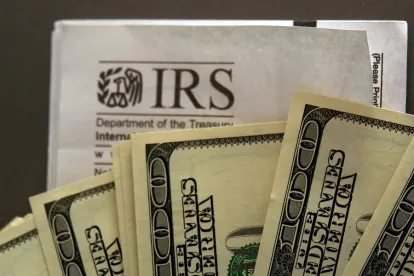Another day, another round of guidance from the federal government on the Families First Coronavirus Response Act (FFCRA). This time, it is the Internal Revenue Service (IRS) that has issued long-awaited FAQs for those employers looking to take advantage of the new law’s tax credits. The FAQs also include insights for employers with under 50 employees seeking an exemption from the law.
Guidance for Covered Employers Seeking the Tax Credit
Tax Credit Basics: The tax credit will cover the following:
- 100 percent of the wages paid to an employee taking an eligible leave under the FFCRA
- Any qualified health plan expenses allocable to those wages paid during a calendar quarter
- The amount of the employer’s share of Medicare taxes imposed on those wages
Procedure for Obtaining the Tax Credits: The tax credit will be claimed on federal quarterly employment tax returns. Employers that don’t want to wait until filing quarterly tax returns can obtain the credit by reducing their federal employment tax deposits. Employers can also get a refund if the “amount of the credits is more than certain federal employment taxes” owed by the employer.
Record Retention Requirements: Employers must retain records that support each employee’s need for FFCRA leave and “retain the Forms 941, Employer’s Quarterly Federal Tax Return, and 7200, Advance of Employer Credits Due To COVID-19, and any other applicable filings made to the IRS requesting the credit.” All records should be maintained for four years.
Information to be Provided by the Employee
- The IRS advises that documentation from the employee should be in the form of a written request that includes the following:
-
- The employee’s name
- The date or dates for which leave is requested
- A statement of the COVID-19-related reason for which the employee is requesting leave and written support for such reason
- A statement that the employee is unable to work, including by means of telework, for such reason
Where the leave requested is because of a “quarantine order or self-quarantine advice,” an employee should provide:
-
- The “governmental entity ordering quarantine or the name of the health care professional advising self-quarantine”
- The name of the person and relation to the employee if the person subject to quarantine or advised to self-quarantine is not the employee
Where the leave is requested because of “a school closing or child care provider unavailability” the employee should provide:
-
- The “name and age of the child (or children) to be cared for, the name of the school that has closed or place of care that is unavailable, and a representation that no other person will be providing care for the child during the period for which the employee is receiving family medical leave”
- A statement explaining “special circumstances” that require the employee to provide care if the child is older than 14
- Information to be Prepared by the Employer
The IRS also advises that employers can substantiate the need for the tax credits by maintaining the following evidence:
-
- Documentation showing how the employer determined the amount of sick and family leave wages paid to eligible employees, including records of work/telework and qualified sick leave and qualified family leave
- Documentation to show how the employer determined the amount of qualified health plan expenses allocated to wages
- Copies of completed Forms 7200, Advance of Employer Credits Due To COVID-19, and completed Forms 941, Employer’s Quarterly Federal Tax Return that the employer submitted to the IRS
FFCRA Tax Credits and the CARES Act: Seeking a tax credit under the FFCRA does not prohibit an employer from also obtaining a Small Business Interruption Loan under the Coronavirus Aid, Relief, and Economic Security (CARES) Act, but the IRS restricts employers from double-dipping. The tax credits are not considered to be eligible payroll costs under the loan forgiveness provisions of the CARES Act.
Employee Withholdings: Emergency Sick Leave and Emergency Paid Family Leave benefits paid to employees are still subject to federal income tax withholdings and the employee’s share of social security and Medicare taxes.
Guidance for Employers with Less Than 50 Employees Seeking an FFCRA Exemption
Eligibility for the Small Business Exemption: Businesses with fewer than 50 employees may claim an exemption from providing certain paid sick leave and expanded family and medical leave. This also means that the employer claiming the exemption is not entitled to the tax credits.
Limited Application of the Exemption: The exemption for small businesses only applies if the leave is requested because the employee has a child whose school or place of care is closed, or the employee’s child care provider is unavailable because of COVID-19-related reasons and the request would result in at least one of the following:
- The employer’s “expenses and financial obligations exceeding available business revenues and cause the small business to cease operating at a minimal capacity”
- A “substantial risk to the financial health or operational capabilities of the small business because of their specialized skills, knowledge of the business, or responsibilities”
- A “lack of sufficient workers who are able, willing, and qualified, and who will be available at the time and place needed, to perform the labor or services provided those requesting the leave”
Record Retention Requirements: The IRS relies upon the Department of Labor (DOL) guidance which provides that small businesses with fewer than 50 employees must keep documentation that would demonstrate why the business qualifies for the exemption. The DOL has specifically instructed employers not to send documentation to a government entity in pursuit of the exemption.



 />i
/>i

